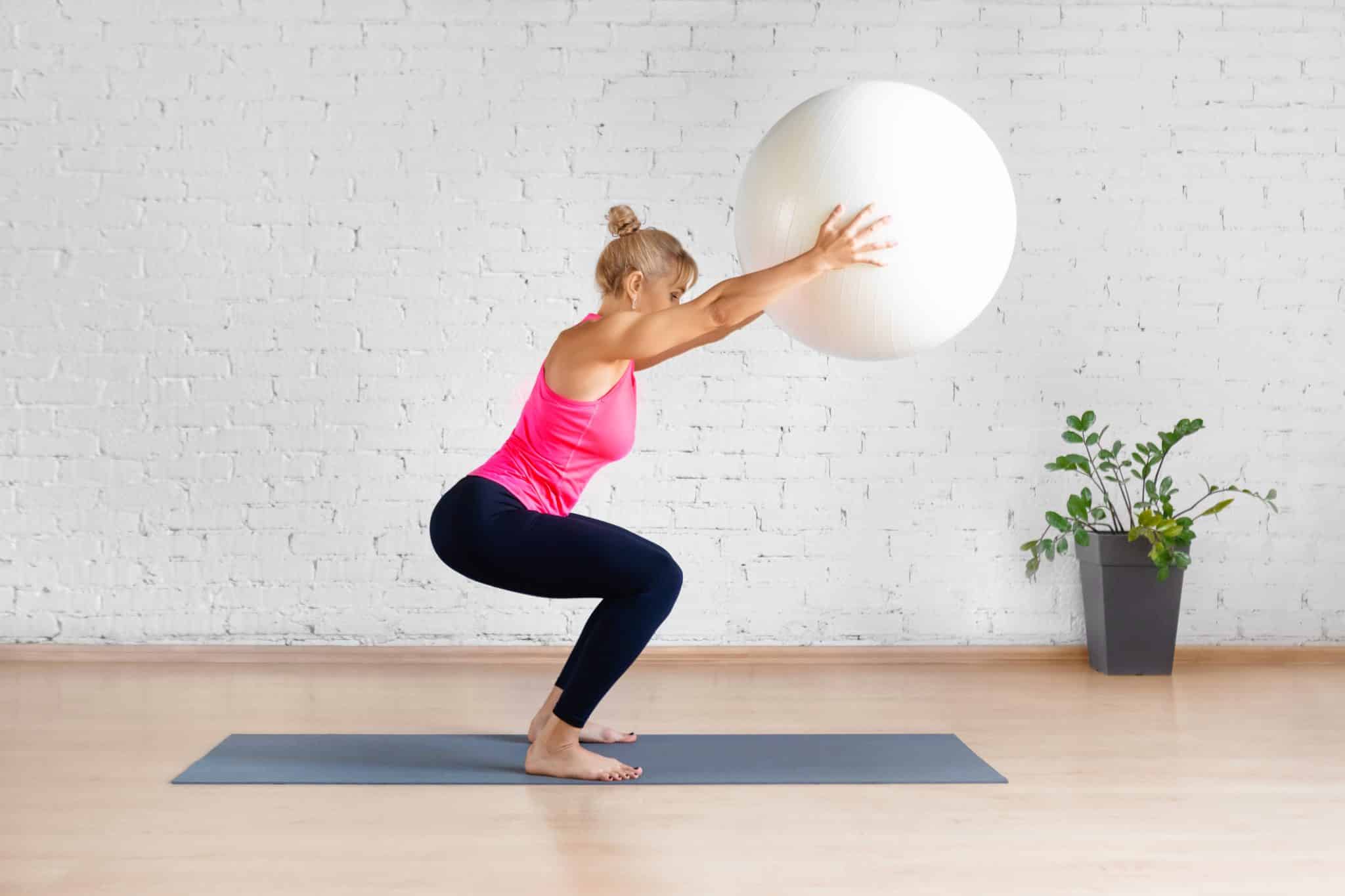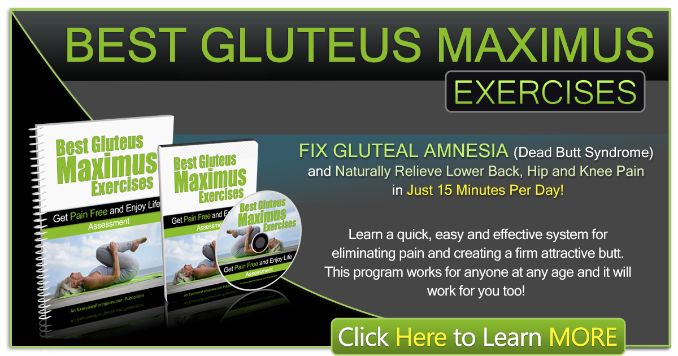A stability ball squat is a variation of the traditional squat that incorporates a stability ball (also known as a Swiss ball) to create an unstable surface. Unlike regular squats, where you stand with both feet firmly planted on the ground, the stability ball squat adds a level of instability, forcing your body to work harder to maintain balance and proper form.
Different Squat Variations with Stability Ball
1. Wall Squat with Stability Ball
- Begin in an upright standing position with your feet shoulder-width apart and a stability ball placed between your lower back and the wall.
- Then, keep your hands in front of your chest for balance.
- Engage your core and slowly lower yourself into a squat by bending your knees and sliding down the wall.
- Keep your back straight and your knees aligned with your toes.
- Hold this position for several deep belly breaths, in through your nose and out through your mouth. Press through your heels to return to the starting position.
- Moreover, repeat the movement for the desired number of repetitions.
Tim Keeley, a physio expert advises that if you’re not ready for regular squats, try wall squats with a stability ball. This helps with balance and technique while taking the load off your body.
2. Single Leg Stability Ball Wall Squat
- Begin in an upright standing position with your feet close together and a stability ball placed between your lower back and the wall.
- Place your hands on your hips and ring your foot slightly to the midline so it is not right underneath the hip.
- Press one foot back against the wall and engage your core muscles.
- Slowly lower yourself into a squat by bending your knees and sliding down the wall while keeping your back straight.
- Hold this position for several deep belly breaths, in through your nose and out through your mouth.
- Press through your heels to return to the starting position.
- Repeat the movement for the desired number of repetitions.
3. Overhead Squat with Stability Ball
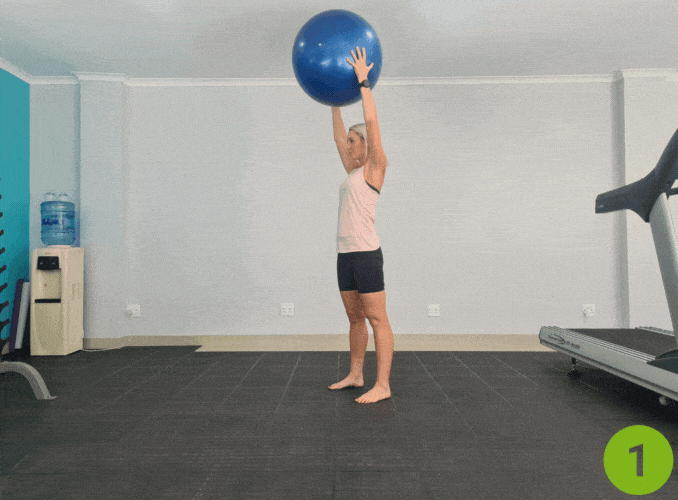
- Begin in an upright standing position with your feet shoulder-width apart, while maintaining good alignment with your head, shoulders, and hips.
- Hold a stability ball overhead with both hands, keeping your arms straight.
- Then, engage your core and hinge at your hips as you lower into a squat, bending your knees and pushing your hips back.
- Keep the ball overhead, chest lifted, and then knees aligned with your toes.
- Hold this position for several deep belly breaths, in through your nose and out through your mouth.
- Press through your heels to return to the starting position.
- Moreover, repeat the movement for the desired number of repetitions.
4. Stability Ball Squat
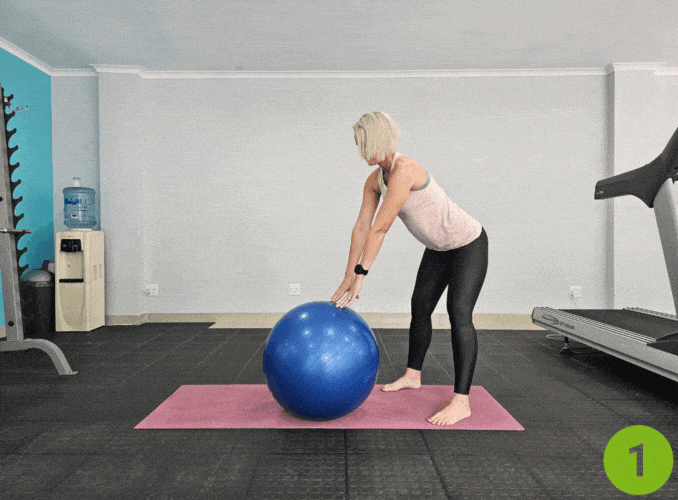
- Begin in an upright standing position with your feet shoulder-width apart and your hands resting on a stability ball in front of you.
- Maintain good alignment with your head, shoulders, and hips.
- Engage your core and slowly bend your knees to lower into a squat position while keeping your hands on the ball.
- Ensure your back stays straight and your knees do not extend past your toes.
- Hold this position for several deep belly breaths, in through your nose and out through your mouth.
- Press through your heels to return to the starting position.
- Repeat the movement 3-5 repetitions.
How Does It Differ from Regular Squats?
In a regular squat, you lower your hips while keeping your feet flat on the floor, mainly working your legs. It’s done on a stable surface, so balance isn’t much of a challenge.
Moreover, with a stability ball squat, the ball adds instability, making your core and stabilizing muscles work harder to keep you balanced. This helps improve strength and stability, especially in your abs and lower back.
Benefits of Stability Ball Squat
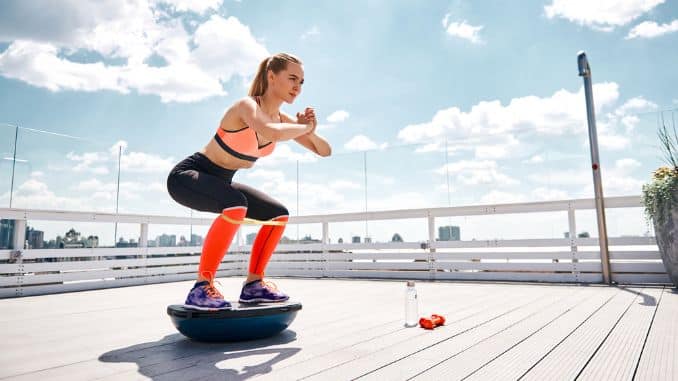
- Squatting on an unstable surface [1] like a BOSU ball (bottom-up instability) increases activation in the quadriceps, hamstrings, and calf muscles.
- Stability ball squats increase lower limb muscle activation [2], particularly in the quadriceps, hamstrings, and calves, while also promoting greater ankle mobility and knee flexion.
- Stability ball squats help with balance and core stability.
- Despite the lower power output [3] , unstable surface exercises are effective for improving trunk stability, balance, and postural control, particularly in individuals recovering from injuries.
Common Mistakes and Safety Considerations
- Avoid leaning forward or arching your back, as this can put strain on your lower back and lead to injury.
- Keep your knees behind your toes, and avoid letting them extend past your toes.
- Use proper form and technique throughout the movement, and avoid using momentum or jerking motions.
- Make sure to warm up before starting your workout and cool down afterward to prevent injury.
- Consider using a stability ball or other support device to help maintain good posture and prevent injury.
- Excessive use of unstable surfaces can reduce force production and may not be suitable for those with certain injuries or performance goals.
Conclusion
Stability ball squats are a great way to strengthen your legs, improve balance, and engage your core. They’re perfect for building stability and mobility, especially if you’re recovering from an injury. Although stability ball squats are great for enhancing balance and coordination, they are not a substitute for traditional squats when it comes to building maximum strength. Instead, they can be a valuable addition to your workout as a complementary exercise.
Have you tried stability ball squats? Share your experience in the comments below!
If you are looking for a more comprehensive resource to overcome your back and lower body injuries quickly, securely, and effectively, then click here to check out the Best Gluteus Medius Exercises program.
FAQ’s
Are stability ball squats good?
Stability ball squats can be a beneficial addition to your workout routine, especially for improving balance, core stability, and lower body strength. They are a great option for those looking to enhance coordination and mobility using their body weight. However, they may not be as effective for building maximal strength compared to traditional squats, especially if you’re targeting heavy lifting or the upper body.
What muscles do stability ball wall squats work?
Stability ball wall squats primarily target the lower body muscles, including the quadriceps, hamstrings, and calves. Additionally, the core and stabilizing muscles, especially the lower back and abdominals, are engaged to maintain balance. The ball helps support the back, allowing you to focus on form and range of motion.
What are the benefits of a stability ball?
A stability ball helps improve balance, core stability, and postural control. It is also great for flexibility and mobility, particularly in the lower body. The added instability forces your body to activate more stabilizing muscles, which can support injury prevention and aid in rehabilitation.
Are medicine ball squats effective?
Medicine ball squats can be effective for engaging the lower body and improving core strength. They add an element of upper body activation when the medicine ball is used overhead or held during the squat. While they provide a full-body workout using body weight, their effectiveness depends on the intensity and the weight of the medicine ball used. They are a good option for adding variety and challenge to your routine.
Can beginners do stability ball squats?
Yes, stability ball squats are beginner-friendly, but it’s important to start with proper form and a stable surface. If you’re new to this exercise, begin with a wall-supported stability ball squat to build confidence and strength. Keep your movements slow and controlled, and focus on engaging your core for balance. If needed, hold onto a sturdy surface for added support. As you gain stability and strength, you can progress to more advanced variations.

